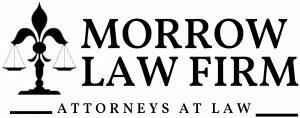
Filing a Claim for Injuries Caused by Contaminated Food in Louisiana
William P. Morrow, attorney at Morrow Law Firm in Opelousas, Louisiana, described the legal pathways available under current Louisiana tort and product liability statutes.
“Claims involving contaminated food are generally governed by the Louisiana Products Liability Act. When food is considered unreasonably dangerous due to contamination, mislabeling, or improper handling, there may be grounds for legal action against the responsible parties,” said Morrow.
The Louisiana Products Liability Act (LPLA), codified under La. R.S. 9:2800.51 et seq., outlines the types of product defects that may lead to liability. These include defects in construction or composition, defects in design, inadequate warnings, and breaches of express warranty. In the context of contaminated food, most claims arise from a defect in construction or composition.
A construction or composition defect refers to a deviation from the intended design or specifications of the food product, making it unreasonably dangerous. This may include contamination with pathogens such as Salmonella, Listeria, or E. coli, as well as the presence of foreign objects like glass, metal, or plastic.
Claims involving contaminated food often fall under strict liability principles. Under Louisiana law, the injured party must show that the product was unreasonably dangerous in one of the ways outlined by the LPLA, that the condition existed at the time it left the manufacturer’s control, and that it caused the injury in question. Proof of negligence is not required.
Liable parties may include food manufacturers, processors, distributors, retailers, and even restaurants or foodservice operators, depending on the source of the contamination. Each party in the distribution chain may bear responsibility if the product was altered, mishandled, or sold in an unsafe condition.
Common injuries associated with foodborne illness include gastrointestinal distress, dehydration, organ damage, and in some cases, long-term medical complications such as reactive arthritis or kidney failure. Certain populations, including children, the elderly, and immunocompromised individuals, may suffer more severe outcomes.
Medical documentation, laboratory results, and product tracing are critical in substantiating these claims. When possible, the contaminated product itself should be preserved for testing. Packaging, receipts, and labels may also help trace the product back to a particular batch or facility.
The Louisiana Department of Health and the U.S. Food and Drug Administration (FDA) often coordinate efforts to investigate outbreaks. Findings from public health investigations may support the plaintiff’s case, especially in situations where multiple individuals suffered illness from the same food source.
Timing is critical in filing food-related injury claims. Louisiana generally imposes a one-year prescriptive period from the date of injury or illness for personal injury claims, including those involving contaminated food. In some instances, the prescriptive period may begin when the injury is discovered or reasonably should have been discovered, particularly in cases where symptoms appear after a delay. Nevertheless, timely consultation and action are strongly advised due to the strict limits under state law.
The economic and non-economic damages recoverable in such claims may include medical expenses, lost wages, pain and suffering, and, in severe cases, long-term care or disability-related costs. In wrongful death cases resulting from foodborne illness, surviving family members may pursue additional claims under Louisiana’s wrongful death and survival statutes.
Class action suits may be filed when multiple individuals are affected by a single contaminated product or batch. These cases typically involve coordination among legal teams, regulatory agencies, and affected individuals. However, individual claims remain viable for isolated incidents not connected to broader outbreaks.
Product recalls often follow confirmed reports of food contamination. While a recall notice does not create automatic liability, it may strengthen a claim by showing that the manufacturer or distributor acknowledged a product defect. Claimants are not required to prove that a recall occurred but may use recall documentation to support the timeline and severity of the issue.
Morrow Law Firm, led by William P. Morrow, John Michael Morrow, Jr., and Stephen M. Morrow, continues to handle matters involving personal injury and product liability, including cases related to unsafe food products and consumer harm.
Food safety remains a shared responsibility across the production, packaging, and distribution chain. When a breakdown in that system results in consumer injury, the law offers avenues for recovery. Clear documentation, prompt reporting, and adherence to statutory deadlines are essential components of a successful claim involving contaminated food in Louisiana.
Morgan Thomas
Rhino Digital, LLC
+1 504-875-5036
email us here
Visit us on social media:
Facebook
Distribution channels: Culture, Society & Lifestyle, Food & Beverage Industry, Insurance Industry, Law
Legal Disclaimer:
EIN Presswire provides this news content "as is" without warranty of any kind. We do not accept any responsibility or liability for the accuracy, content, images, videos, licenses, completeness, legality, or reliability of the information contained in this article. If you have any complaints or copyright issues related to this article, kindly contact the author above.
Submit your press release

